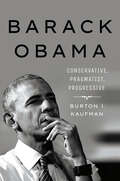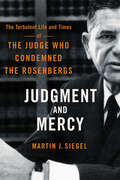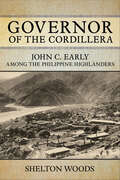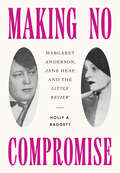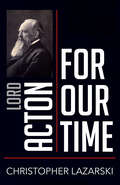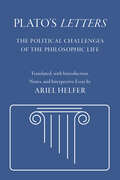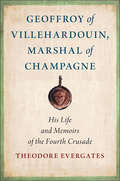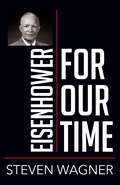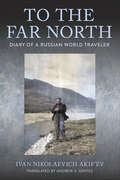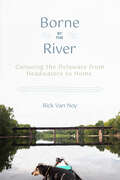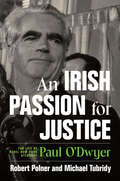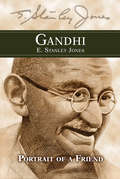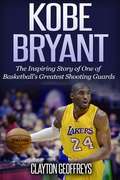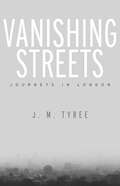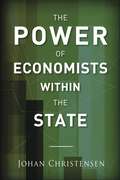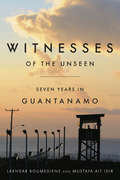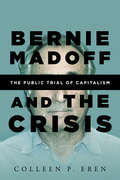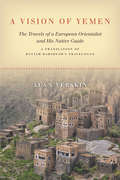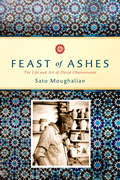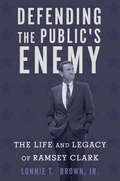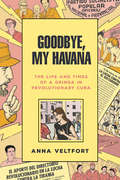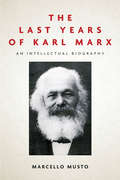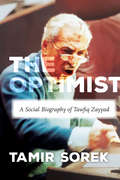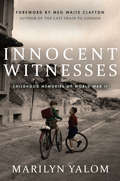- Table View
- List View
Barack Obama: Conservative, Pragmatist, Progressive
by Burton I. KaufmanIn this insightful biography, Burton I. Kaufman explores how the political career of Barack Obama was marked by conservative tendencies that frustrated his progressive supporters and gave the lie to socialist fearmongering on the right. Obama's was a landmark presidency that paradoxically, Kaufman shows, resulted in few, if any, radical shifts in policy. Following his election, President Obama's supporters and detractors anticipated radical reform. As the first African American to serve as president, he reached the White House on a campaign promise of change. But Kaufman finds in Obama clear patterns of classical conservativism of an ideological sort and basic policy-making pragmatism. His commitment to usher in a multiracial, multiethnic, and multicultural society was fundamentally connected to opening up, but not radically altering, the existing free enterprise system. The Affordable Care Act, arguably President Obama's greatest policy achievement, was a distillation of his complex motivations for policy. More conservative than radical, the ACA fitted the expansion of health insurance into the existing system. Similarly, in foreign policy, Obama eschewed the use of force to affect regime change. Yet he kept boots on the ground in the Middle East and supported ballot-box revolts geared toward achieving in foreign countries the same principles of liberalism, free enterprise, and competition that existed in the United States. In estimating the course and impact of Obama's full political life, Kaufman makes clear that both the desire for and fear of change in the American polity affected the popular perception but not the course of action of the forty-fourth US president.
Judgment and Mercy: The Turbulent Life and Times of the Judge Who Condemned the Rosenbergs
by Martin J. SiegelIn Judgment and Mercy, Martin J. Siegel offers an insightful and compelling biography of Irving Robert Kaufman, the judge infamous for condemning Julius and Ethel Rosenberg to death for atomic espionage.In 1951, world attention fixed on Kaufman's courtroom as its ambitious young occupant stridently blamed the Rosenbergs for the Korean War. To many, the harsh sentences and their preening author left an enduring stain on American justice. But then the judge from Cold War central casting became something unexpected: one of the most illustrious progressive jurists of his day. Upending the simplistic portrait of Judge Kaufman as a McCarthyite villain, Siegel shows how his pathbreaking decisions desegregated a Northern school for the first time, liberalized the insanity defense, reformed Attica-era prisons, spared John Lennon from politically motivated deportation, expanded free speech, brought foreign torturers to justice, and more. Still, the Rosenberg controversy lingered. Decades later, changing times and revelations of judicial misconduct put Kaufman back under siege. Picketers dogged his footsteps as critics demanded impeachment. And tragedy stalked his family, attributed in part to the long ordeal. Instead of propelling him to the Supreme Court, as Kaufman once hoped, the case haunted him to the end.Absorbingly told, Judgment and Mercy brings to life a complex man by turns tyrannical and warm, paranoid and altruistic, while revealing intramural Jewish battles over assimilation, class, and patriotism. Siegel, who served as Kaufman's last law clerk, traces the evolution of American law and politics in the twentieth century and shows how a judge unable to summon mercy for the Rosenbergs nonetheless helped expand freedom for all.
Governor of the Cordillera: John C. Early among the Philippine Highlanders (NIU Southeast Asian Series)
by Shelton WoodsGovernor of the Cordillera tells the story of an American colonial official in the Philippines who took the unpopular position of defending the rights of the Igorots, was fired in disgrace, and made a triumphal return. During the first fifteen years of colonial rule (1898–1913), a small group of Americans controlled the headhunting tribes who were wards of the nascent colonial government. These officials ignored laws, carved out fiefdoms, and brutalized (or killed) those who challenged their rule. John Early was cut from a different cloth. Battling colleagues and supervisors over their treatment of the mountain people, Early also had run-ins with lowland Filipino leaders like Manuel Quezon. Early's return as governor of the entire Cordillera was celebrated by all the tribes.In Governor of the Cordillera Shelton Woods combines biography with colonial history. He includes a discussion on the exhibition of the Igorots at the various fairs in the US and Europe, which Early tried to stop. The life of John Early is a testament to navigating political and racial divides with integrity.
Making No Compromise: Margaret Anderson, Jane Heap, and the "Little Review"
by Holly A. BaggettMaking No Compromise is the first book-length account of the lives and editorial careers of Margaret Anderson and Jane Heap, the women who founded the avant-garde journal the Little Review in Chicago in 1914. Born in the nineteenth-century Midwest, Anderson and Heap grew up to be iconoclastic rebels, living openly as lesbians, and advocating causes from anarchy to feminism and free love. Their lives and work shattered cultural, social, and sexual norms. As their paths crisscrossed Chicago, New York, Paris, and Europe; two World Wars; and a parade of the most celebrated artists of their time, they transformed themselves and their journal into major forces for shifting perspectives on literature and art. Imagism, Dada, surrealism, and Machine Age aesthetics were among the radical trends the Little Review promoted and introduced to US audiences. Anderson and Heap published the early work of the "men of 1914"—Ezra Pound, James Joyce, William Butler Yeats, and T. S. Eliot—and promoted women writers such as Djuna Barnes, May Sinclair, Dorothy Richardson, Mina Loy, Mary Butts, and the inimitable Baroness Elsa von Freytag-Loringhoven. In the mid-1920s Anderson and Heap became adherents of George I. Gurdjieff, a Russian mystic, and in 1929 ceased publication of the Little Review.Holly A. Baggett examines the roles of radical politics, sexuality, modernism, and spirituality and suggests that Anderson and Heap's interest in esoteric questions was evident from the early days of the Little Review. Making No Compromise tells the story of two women who played an important role in shaping modernism.
Lord Acton for Our Time (People for Our Time)
by Christopher LazarskiLord Acton for Our Time illuminates the thought of the English historian, politician, and writer who gave us the famous maxim: "Power tends to corrupt, and absolute power corrupts absolutely." Extracting lessons for our current age, Christopher Lazarski focuses on liberty—how Acton understood it, what he thought was its foundation and necessary ingredients, and the history of its development in Western Civilization. Acton is known as a historian, or even the historian, of liberty and as an ardent liberal, but there is confusion as to how he understood liberty and what kind of liberalism he professed. Lord Acton for Our Time provides an introduction that presents essentials about Acton's life and recovers his theory of liberalism. Lazarski analyzes Acton's type of liberalism, probing whether it can offer a solution to the crisis of liberal democracy in our own era. For Acton, liberty is the freedom to do what we ought to do, both as individuals and as citizens, and his writings contain valuable lessons for today.
Plato's "Letters": The Political Challenges of the Philosophic Life (Agora Editions)
by PlatoIn Plato's "Letters", Ariel Helfer provides to readers, for the first time, a highly literal translation of the Letters, complete with extensive notes on historical context and issues of manuscript transmission. His analysis presents a necessary perspective for readers who wish to study Plato's Letters as a work of Platonic philosophy. Centuries of debate over the provenance and significance of Plato's Letters have led to the common view that the Letters is a motley collection of jewels and scraps from within and without Plato's literary estate. In a series of original essays, Helfer describes how the Letters was written as a single work, composed with a unity of purpose and a coherent teaching, marked throughout by Plato's artfulness and insight and intended to occupy an important place in the Platonic corpus. Viewed in this light, the Letters is like an unusual epistolary novel, a manner of semifictional and semiautobiographical literary-philosophic experiment, in which Plato sought to provide his most demanding readers with guidance in thinking more deeply about the meaning of his own career as a philosopher, writer, and political advisor.Plato's "Letters" not only defends what Helfer calls the "literary unity thesis" by reviewing the scholarly history pertaining to the Platonic letters but also brings out the political philosophic lessons revealed in the Letters. As a result, Plato's "Letters" recovers and rehabilitates what has been until now a minority view concerning the Letters, according to which this misunderstood Platonic text will be of tremendous new importance for the study of Platonic political philosophy.
Geoffroy of Villehardouin, Marshal of Champagne: His Life and Memoirs of the Fourth Crusade (Medieval Societies, Religions, and Cultures)
by Theodore EvergatesGeoffroy of Villehardouin, Marshal of Champagne by Theodore Evergates traces the remarkable life of Geoffroy of Villehardouin (c. 1148–c. 1217) from his earliest years in Champagne through his last years in Greece after the crusade. The fourth son of a knight, Geoffroy became marshal of Champagne, principal negotiator in organizing the Fourth Crusade, chief of staff of the expedition to and conquest of Constantinople, garrison commander of Constantinople and, in his late fifties, field commander defending the Latin settlement in the Byzantine empire against invading Bulgarian armies and revolting Greek cities. Known for his diplomatic skills and rectitude, he served as the chief military advisor to Count Thibaut III of Champagne and later to Emperor Henry of Constantinople.Geoffroy is remarkable as well for dictating the earliest war memoir in medieval Europe, which is also the earliest prose narrative in Old French. Addressed to a home audience in Champagne, he described what he did, what he saw, and what he heard during his eight years on crusade and especially during the fraught period after the conquest of Constantinople. His memoir, The Book of the Conquest of Constantinople, furnishes a commander's retrospective account of the main events and inner workings of the crusade—the innumerable meetings and speeches, the conduct (not always commendable) of the barons, and the persistent discontent within the army—as well as a celebration of his own deeds as a diplomat and a military commander.
Eisenhower for Our Time (People for Our Time)
by Steven WagnerEisenhower for Our Time provides an introduction to the Eisenhower presidency, extracting lessons for today's world. Steven Wagner proposes that the need to maintain balance defines Eisenhower's presidency. Wagner examines a series of defining moments that were among Eisenhower's greatest challenges, some of which resulted in his greatest accomplishments: the decision to run for president, his political philosophy of the "Middle Way," the creation of a national security policy, the French Indochina War, Senator Joseph McCarthy, the Little Rock Desegregation Crisis, the Race for Space, and the famous Farewell Address. Wagner looks at Eisenhower's executive ability, leadership, decision making, and willingness to compromise, as well as the qualities of duty, integrity, and good character. The moments detailed in Eisenhower for Our Time show Eisenhower as a president intimately engaged in the decisions that defined America in his time and that apply to ours today. The President's actions place him among the most successful presidents and provide many lessons to guide us in our time and in the future.
To the Far North: Diary of a Russian World Traveler (NIU Series in Slavic, East European, and Eurasian Studies)
by Ivan Nikolaevich Akif’ëvThis annotated translation of To the Far North presents the diary of a twenty-seven-year-old Russian physician who was part of the 1900 expedition to the Chukotka Peninsula to find gold. No other account so richly details life along the North Pacific Rim before World War I, especially from a Russian perspective. This volume relates the expedition's formation, development, and aftermath and offers unique insights on the region's place in both Russian policymaking and geopolitics. The illustrated diary includes picturesque descriptions of San Francisco, the Nome Gold Rush, Chukchi culture, Petropavlovsk, Vladivostok, and Nagasaki, Japan.Andrew A. Gentes's translation is based on an edition of Akifëv's book that was published in St. Petersburg in 1904. The diary shows how Russian and American views and cultural values clashed over a territory that is today more geopolitically important than ever. By documenting Akifëv's personal travels outside the expedition, To the Far North also demonstrates, in both human and personal terms, the role Russians played in shaping this region's history.
Borne by the River: Canoeing the Delaware from Headwaters to Home
by Rick Van NoyAfter a near-fatal stroke and a separation, amidst a global pandemic, Rick Van Noy decided to go for a paddle. In Borne by the River, he charts the story of discovery, and healing that came from this solo canoe journey. Paddling two hundred miles on the Delaware River to his boyhood home just upriver from Trenton, New Jersey, Van Noy contemplates his fate and life, as well as the simple joy of sitting in a small boat floating down a large river with his dog, Sully.Deftly combining memoir, natural and local history, and engaging reportage of his encounters with other paddlers and river enthusiasts, including members of the Lenape Nation of Pennsylvania, Van Noy reveals deep and shifting layers of environmental, historical, cultural, and personal significance of the Delaware. Borne by the River reckons with the way that rivers braid into one's own life—thrilling rapids, eddying pauses, and life-changing rifts and falls. Van Noy rediscovers and shares how river journeys can scatter anxieties, wash away regrets, and recreate the spirit in its free-flowing currents.
An Irish Passion for Justice: The Life of Rebel New York Attorney Paul O'Dwyer
by Robert Polner Michael TubridyAn Irish Passion for Justice reveals the life and work of Paul O'Dwyer, the Irish-born and quintessentially New York activist, politician, and lawyer who fought in the courts and at the barricades for the rights of the downtrodden and the marginalized throughout the 20th century.Robert Polner and Michael Tubridy recount O'Dwyer's legal crusades, political campaigns, and civic interactions, deftly describing how he cut a principled and progressive path through New York City's political machinery and America's reactionary Cold War landscape. Polner and Tubridy's dynamic, penetrating depiction showcases O'Dwyer's consistent left-wing politics and defense of accused Communists in the labor movement, which exposed him to sharp criticism within and beyond the Irish-American community. Even so, his fierce beliefs, loyalty to his brother William, who was the city's mayor after World War II, and influence in Irish-American circles also inspired respect and support. Recognized by his gentle brogue and white pompadour, he fought for the creation of Israel, organized Black voters during the Civil Rights movement, and denounced the Vietnam War as an insurgent Democratic candidate for US Senate. Finally, he enlisted future president Bill Clinton to bring an end to the Troubles in Northern Ireland. As the authors demonstrate, O'Dwyer was both a man of his time and a politician beyond his years.An Irish Passion for Justice tells an enthralling and inspiring New York immigrant story that uncovers how one person, shaped by history and community, can make a difference in the world by holding true to their ideals.
Gandhi: Portrait of a Friend
by E Stanley Jones Foundation"On the day that Mahatma Gandhi was killed, I arrived in Delhi just an hour and a quarter before the tragedy ... the greatest tragedy since the Son of God died on the cross." So begins this compelling account of Gandhi by E. Stanley Jones, the world-renowned missionary evangelist to India during 40 seething years of struggle. Based on an intimate knowledge and understanding, Jones's revealing interpretation was written in gratitude to Gandhi, who, although they often disagreed, showed Jones "more of the spirit of Christ than perhaps any other . . . in East or West." "Martin Luther King, Jr., told me he owed a debt to my father for his book on Mahatma Gandhi. He had read many books on Gandhi, read his writings, but it was that particular book of my father's that had triggered his decision to use the method of ... nonviolence in his civil rights movement for his people." --Eunice Jones Mathews "Highly recommended."--Library Journal "To understand the meaning of this great leader ... read this book of interpretation."--Kirkus "Jones ... possesses a great gift of sympathetically interpreting the East to the West."--[London] Times Literary Supplement
The Boswell Legacy
by Kyla Titus David McCain Chica Boswell MinnerlyThe Boswell Sisters rose to stardom during the Great Depression and established an enormously successful career in a very short time as pioneers of early mass entertainment, through the new media of electrical recordings, radio networks, and movies. Along with Louis Armstrong and Duke Ellington, they led an American jazz "invasion" of Europe in 1933. They were admired by their frequent singing partner Bing Crosby, idolized by a struggling trio from Minneapolis who later gained fame as the Andrews Sisters, and praised as "the best act I ever followed" by a trouper named Bob Hope. Ella Fitzgerald consistently credited Connie Boswell as her main influence and Irving Berlin singled her out as his favorite interpreter of his songs. The beautiful and talented Boswells sold out stage shows from New York to London and the number of records they sold is estimated to be over 75 million. Then suddenly, it was over. The time has finally come to tell their story. THE BOSWELL LEGACY is the first full-scale biography of these icons of American music, written by Kyla Titus, the granddaughter of Vet Boswell and caretaker of the voluminous Boswell family archives, as only she can tell it. Within these pages, readers may discover the answers to questions left unanswered for decades. Why did the Boswell Sisters disband? What was the cause of Connie’s paralysis? Why are the Boswell Sisters not household names today? And so many more. Most importantly, readers will learn about the development of a unique musical style that is timeless--a legacy--that is still heralded almost a century later.
Kobe Bryant: The Inspiring Story of One of Basketball's Greatest Shooting Guards (An Unauthorized Biography)
by Clayton GeoffreysKobe Bryant was the face of the Lakers dynasty for the past two decades and for good reason. Few players have commanded a basketball court as much as Kobe in historical performances such as his notable 81-point performance in just under 42 minutes of playing time in 2006 against the Toronto Raptors. While the 2015-2016 NBA season marked the end to Kobe’s storied career, the Black Mamba’s legacy will never be forgotten. Few players can parallel Kobe Bryant in terms of competitive fire and will to win. His polarizing figure defines him and makes even those who do not like him at the very least respect him. Read on to learn about the days of when Kobe played alongside Shaquille O’Neal, Robert Horry, Metta World Peace, Derek Fisher, and Pau Gasol in some of the greatest times of Los Angeles Lakers’ basketball history. Get this basketball book if you're looking for an entertaining afternoon read or an affordable gift for your basketball fan.
Vanishing Streets: Journeys in London
by J. M. TyreeVanishing Streets reveals an American writer's twenty-year love affair with London. Beguiling and idiosyncratic, obsessive and wry, it offers an illustrated travelogue of the peripheries, retracing some of London's most curious locations. As J. M. Tyree wanders deliriously in "the world's most visited city," he rediscovers and reinvents places that have changed drastically since he was a student at Cambridge in the 1990s. Tyree stumbles into the ghosts of Alfred Hitchcock, Graham Greene, and the pioneers of the British Free Cinema Movement. He offers a new way of seeing familiar landmarks through the lens of film history, and reveals strange nooks and tiny oddities in out-of-the-way places, from a lost film by John Ford supposedly shot in Wapping to the beehives hidden in Tower Hamlets Cemetery, an area haunted by a translation error in W. G. Sebald's Austerlitz. This book blends deeply personal writing with a foreigner's observations on a world capital experiencing an unsettling moment of transition. Vanishing Streets builds into an astonishing and innovative multi-layered project combining autobiography, movie madness, and postcard-like annotations on the magical properties of a great city. Tyree argues passionately for London as a cinematic dream city of perpetual fascinations and eccentricities, bridging the past and the present as well as the real and the imaginary.
The Power of Economists within the State
by Johan ChristensenThe spread of market-oriented reforms has been one of the major political and economic trends of the late twentieth and early twenty-first centuries. Governments have, to varying degrees, adopted policies that have led to deregulation: the liberalization of trade; the privatization of state entities; and low-rate, broad-base taxes. Yet some countries embraced these policies more than others. Johan Christensen examines one major contributor to this disparity: the entrenchment of U. S. -trained, neoclassical economists in political institutions the world over. While previous studies have highlighted the role of political parties and production regimes, Christensen uses comparative case studies of New Zealand, Ireland, Norway, and Denmark to show how the influence of economists affected the extent to which each nation adopted market-oriented tax policies. He finds that, in countries where economic experts held powerful positions, neoclassical economics broke through with greater force. Drawing on revealing interviews with 80 policy elites, he examines the specific ways in which economists shaped reforms, relying on an activist approach to policymaking and the perceived utility of their science to drive change.
Witnesses of the Unseen: Seven Years in Guantanamo
by Daniel Hartnett NorlandThis searing memoir shares the trauma and triumphs of Lakhdar Boumediene and Mustafa Ait Idir's time inside America's most notorious prison. Lakhdar and Mustafa were living quiet, peaceful lives in Bosnia when, in October 2001, they were arrested and accused of participating in a terrorist plot. After a three-month investigation uncovered no evidence, all charges were dropped and Bosnian courts ordered their freedom. However, under intense U.S. pressure, Bosnian officials turned them over to American soldiers. They were flown blindfolded and shackled to Guantanamo Bay, Cuba, where they were held in outdoor cages for weeks as the now-infamous military prison was built around them. Guantanamo became their home for the next seven years. They endured torture and harassment and force-feedings and beatings, all the while not knowing if they would ever see their families again. They had no opportunity to argue their innocence until 2008, when the Supreme Court issued a landmark ruling in their case, Boumediene v. Bush, confirming Guantanamo detainees' constitutional right to challenge their detention in federal court. Weeks later, the George W. Bush–appointed federal judge who heard their case, stunned by the absence of evidence against them, ordered their release. Now living in Europe and rebuilding their lives, Lakhdar and Mustafa are finally free to share a story that every American ought to know.
Bernie Madoff and the Crisis: The Public Trial of Capitalism
by Colleen P. ErenBernie Madoff's arrest could not have come at a more darkly poetic moment. Economic upheaval had plunged America into a horrid recession. Then, on December 11, 2008, Madoff's $65 billion Ponzi scheme came to light. A father turned in by his sons; a son who took his own life; another son dying and estranged from his father; a woman at the center of a storm—Madoff's story was a media magnet, voraciously consumed by a justice-seeking public. Bernie Madoff and the Crisis goes beyond purely investigative accounts to examine how and why Madoff became the epicenter of public fury and titillation. Rooting her argument in critical sociology, Colleen P. Eren analyzes media coverage of this landmark case alongside original interviews with dozens of journalists and editors involved in the reportage, the SEC Director of Public Affairs, and Bernie Madoff himself. Turning the mirror back onto society, Eren locates Madoff within a broader reckoning about free market capitalism. She argues that our ideological and cultural tendencies to attribute blame to individuals—be they regulators, victims, or "monsters" like Madoff—distracts us from more systemic critiques. Bernie Madoff and the Crisis offers fresh insight into the 2008 crisis, whether we have come to terms with it, and what we have yet to gain from the case of the century.
A Vision of Yemen: The Travels of a European Orientalist and His Native Guide, A Translation of Hayyim Habshush's Travelogue
by Alan VerskinIn 1869, Hayyim Habshush, a Yemeni Jew, accompanied the European orientalist Joseph Halévy on his archaeological tour of Yemen. Twenty years later, Habshush wrote A Vision of Yemen, a memoir of their travels, that provides a vivid account of daily life, religion, and politics. More than a simple travelogue, it is a work of trickster-tales, thick anthropological descriptions, and reflections on Jewish–Muslim relations. At its heart lies the fractious and intimate relationship between the Yemeni coppersmith and the "enlightened" European scholar and the collision between the cultures each represents. The book thus offers a powerful indigenous response to European Orientalism. This edition is the first English translation of Habshush's writings from the original Judeo-Arabic and Hebrew and includes an accessible historical introduction to the work. The translation maintains Habshush's gripping style and rich portrayal of the diverse communities and cultures of Yemen, offering a potent mixture of artful storytelling and cultural criticism, suffused with humor and empathy. Habshush writes about the daily lives of men and women, rich and poor, Jewish and Muslim, during a turbulent period of war and both Ottoman and European imperialist encroachment. With this translation, Alan Verskin recovers the lost voice of a man passionately committed to his land and people.
Feast of Ashes: The Life and Art of David Ohannessian
by Sato MoughalianThe compelling life story of Armenian ceramicist David Ohannessian, whose work changed the face of Jerusalem—and a granddaughter's search for his legacy. Along the cobbled streets and golden walls of Jerusalem, brilliantly glazed tiles catch the light and beckon the eye. These colorful wares—known as Armenian ceramics—are iconic features of the Holy City. Silently, these works of ceramic art—art that also graces homes and museums around the world—represent a riveting story of resilience and survival: In the final years of the Ottoman Empire, as hundreds of thousands of Armenians were forcibly marched to their deaths, one man carried the secrets of this age-old art with him into exile toward the Syrian desert. Feast of Ashes tells the story of David Ohannessian, the renowned ceramicist who in 1919 founded the art of Armenian pottery in Jerusalem, where his work and that of his followers is now celebrated as a local treasure. Ohannessian's life encompassed some of the most tumultuous upheavals of the modern Middle East. Born in an isolated Anatolian mountain village, he witnessed the rise of violent nationalism in the waning years of the Ottoman Empire, endured arrest and deportation in the Armenian Genocide, founded a new ceramics tradition in Jerusalem under the British Mandate, and spent his final years, uprooted, in Cairo and Beirut. Ohannessian's life story is revealed by his granddaughter Sato Moughalian, weaving together family narratives with newly unearthed archival findings. Witnessing her personal quest for the man she never met, we come to understand a universal story of migration, survival, and hope.
Defending the Public's Enemy: The Life and Legacy of Ramsey Clark
by Lonnie T. BrownWhat led a former United States Attorney General to become one of the world's most notorious defenders of the despised? Defending the Public's Enemy examines Clark's enigmatic life and career in a quest to answer this perplexing question. The culmination of ten years of research and interviews, Lonnie T. Brown, Jr. explores how Clark evolved from our government's chief lawyer to a strident advocate for some of America's most vilified enemies. Clark's early career was enmeshed with seminally important people and events of the 1960s: Martin Luther King, Jr., Watts Riots, Selma-to-Montgomery March, Black Panthers, Vietnam. As a government insider, he worked to secure the civil rights of black Americans, resisting persistent, racist calls for more law and order. However, upon entering the private sector, Clark seemingly changed, morphing into the government's adversary by aligning with a mystifying array of demonized clients—among them, alleged terrorists, reputed Nazi war criminals, and brutal dictators, including Saddam Hussein. Is Clark a man of character and integrity, committed to ensuring his government's adherence to the ideals of justice and fairness, or is he a professional antagonist, anti-American and reflexively contrarian to the core? The provocative life chronicled in Defending the Public's Enemy is emblematic of the contradictions at the heart of American political history, and society's ambivalent relationship with dissenters and outliers, as well as those who defend them.
Goodbye, My Havana: The Life and Times of a Gringa in Revolutionary Cuba
by Anna VeltfortAn eyewitness account of idealism, self-discovery, and loss under one of the twentieth-century's most repressive political regimes Set against a backdrop of world-changing events during the headiest years of the Cuban Revolution, Goodbye, My Havana follows young Connie Veltfort as her once relatively privileged life among a community of anti-imperialist expatriates turns to progressive disillusionment and heartbreak. The consolidation of Castro's position brings violence, cruelty, and betrayal to Connie's doorstep. And the crackdown that ultimately forces her family and others to flee for their lives includes homosexuals among its targets—Connie's coming-of-age story is one also about the dangers of coming out. Looking back with a mixture of hardheaded clarity and tenderness at her alter ego and a forgotten era, with this gripping graphic memoir Anna Veltfort takes leave of the past even as she brings neglected moments of the Cold War into the present.
The Last Years of Karl Marx: An Intellectual Biography
by Marcello MustoAn innovative reassessment of the last writings and final years of Karl Marx. In the last years of his life, Karl Marx expanded his research in new directions—studying recent anthropological discoveries, analyzing communal forms of ownership in precapitalist societies, supporting the populist movement in Russia, and expressing critiques of colonial oppression in India, Ireland, Algeria, and Egypt. Between 1881 and 1883, he also traveled beyond Europe for the first and only time. Focusing on these last years of Marx's life, this book dispels two key misrepresentations of his work: that Marx ceased to write late in life, and that he was a Eurocentric and economic thinker fixated on class conflict alone. With The Last Years of Karl Marx, Marcello Musto claims a renewed relevance for the late work of Marx, highlighting unpublished or previously neglected writings, many of which remain unavailable in English. Readers are invited to reconsider Marx's critique of European colonialism, his ideas on non-Western societies, and his theories on the possibility of revolution in noncapitalist countries. From Marx's late manuscripts, notebooks, and letters emerge an author markedly different from the one represented by many of his contemporary critics and followers alike. As Marx currently experiences a significant rediscovery, this volume fills a gap in the popularly accepted biography and suggests an innovative reassessment of some of his key concepts.
The Optimist: A Social Biography of Tawfiq Zayyad (Stanford Studies in Middle Eastern and Islamic Societies and Cultures)
by Tamir SorekTawfiq Zayyad (1929–94) was a renowned Palestinian poet and a committed communist activist. For four decades, he was a dominant figure in political life in Israel, as a local council member, mayor of Nazareth, and member of the Israeli parliament. Zayyad personified the collective struggle of the Palestinian citizens of Israel, challenging the military government following the creation of the state of Israel, leading the 1976 nationwide strike against land confiscation, and tirelessly protesting Israeli military occupation after 1967. With this book, Tamir Sorek offers the first biography of this charismatic figure. Zayyad's life was one of balance and contradiction—between his revolutionary writings as Palestinian patriotic poet and his pragmatic political work in the Israeli public sphere. He was uncompromising in his protest of injustices against the Palestinian people, but always committed to a universalist vision of Arab-Jewish brotherhood. It was this combination of traits that made Zayyad an exceptional leader—and makes his biography larger than the man himself to offer a compelling story about Palestinians and the state of Israel.
Innocent Witnesses: Childhood Memories of World War II
by Marilyn YalomIn a book that will touch hearts and minds, acclaimed cultural historian Marilyn Yalom presents firsthand accounts of six witnesses to war, each offering lasting memories of how childhood trauma transforms lives. The violence of war leaves indelible marks, and memories last a lifetime for those who experienced this trauma as children. Marilyn Yalom experienced World War II from afar, safely protected in her home in Washington, DC. But over the course of her life, she came to be close friends with many less lucky, who grew up under bombardment across Europe—in France, Germany, Hungary, Czechoslovakia, England, Finland, Sweden, Norway, and Holland. With Innocent Witnesses, Yalom collects the stories from these accomplished luminaries and brings us voices of a vanishing generation, the last to remember World War II. Memory is notoriously fickle: it forgets most of the past, holds on to bits and pieces, and colors the truth according to unconscious wishes. But in the circle of safety Marilyn Yalom created for her friends, childhood memories return in all their startling vividness. This powerful collage of testimonies offers us a greater understanding of what it is to be human, not just then but also today. With this book, her final and most personal work of cultural history, Yalom considers the lasting impact of such young experiences—and asks whether we will now force a new generation of children to spend their lives reconciling with such memories.
